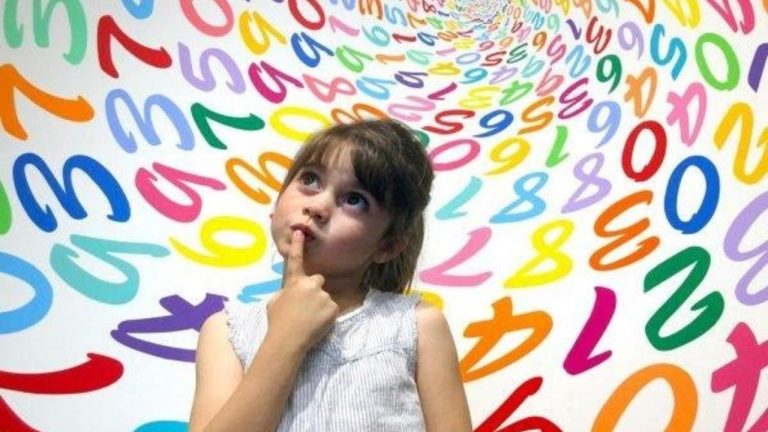Parenting(Age 5 to 8) | Academic | General | Parenting(Age 9 to 12) | Parenting(Age 13 to 16) | 2 year AGO
How to Spot Dyscalculia?

Dyscalculia is a form of disability under which a person has difficulty in understanding arithmetic or mathematical equations. Glynis Hannell, a family psychologist and author of “Dyscalculia: Action Plans for Successful Learning in Mathematics says, “Students and adults with dyscalculia find math puzzling, frustrating and difficult to learn”. People who suffer from dyscalculia face problems in understanding numbers and their necessary implications. They have difficulty in navigating through manipulation of numbers, performance of mathematical calculations, etc. Dyscalculia is also sometimes referred to as ‘Math Dyslexia’ in an informal sense, but this has proved to be a little misleading at certain times as dyslexia is a wholly different concept than dyscalculia. When we approach the scientific aspect of the same, it is submitted by various studies that dyscalculia is originates from dysfunction in the area around the intra parietal sulcus, and potentially also goes to the frontal lobe of the brain.
Statistics show that around 3-6% of the general population may suffer from this cognitive disorder. If a person is suffering from dyscalculia, it does not indicate that his or her cognitive disabilities are permanently impaired. Other functionalities of the brain, like measuring time, distance or spatial reasoning remain unaffected. There are studies that show that children who suffer from dyscalculia may also have ADHD (Attention Deficit Hyperactive Disorder) which may make it difficult for the concentrate in class and at school. Also, there are signs that show that people who suffer from dyscalculia as kids do not outgrow it as adults, therefore, a person who faced difficulty with math when he was a kid might suffer from the same when he grows up. Dyscalculia may prove to be an impediment in a person’s life including impairing one’s ability to perform daily tasks such as grocery shopping, cooking, telling time, counting money, getting to places (other like activities which involve some sort of calculation), known as number sense of an individual.
Although dyscalculia is not a well understood phenomenon, there are various recognized symptoms that can help in detecting whether your child has this condition or not. These are:-
- Losing track while counting:- Although while learning numbers, all children may do this, but kids with dyscalculia may lose track while counting numbers or they may still be counting on their fingers while other children have moved on to counting in their heads.
- Anxiety around numbers:- Your child may throw a fit while doing math homework or may start crying when asked to do his math homework. This is common with kids who have dyscalculia as they get a sense of anxiety while dealing with numbers.
- No sense of estimation:- Kids with dyscalculia may have difficulty or they may entirely not be able to estimate things, like how long will the car take to reach a certain destination or the height of a certain building.
- Difficulty in understanding math problems:- Children suffering from dyscalculia face difficulty when presented with developing an understanding for solving math problems.
- Counting money or making change:- Perhaps the easiest mode of spotting dyscalculia is that people suffering from this disorder have a hard time in counting money or adding or subtracting simple numbers for making change, for instance, A gives X $100 and asks X to deduct $60, X who suffers from dyscalculia may not be able to solve this easy deduction exercise and may end up giving A more than anticipated (that is, more than $40).
- Forgetful about phone numbers or street address:- Children with dyscalculia often tend to be forgetful about phone numbers of their own parents , friends,etc. Also, in this digital age no one really remembers phone numbers as they are already in our phone numbers, but small children who are yet to receive their own phones are made to memorize their parents’ or home phone number in case of an emergency. In this case, the child often forgets phone numbers or his/her home address.
- Unable to concentrate on mentally intensive tasks:- Any mentally intensive task becomes a little too much for children who suffer from dyscalculia.
- Poor name revival or mistaken recollection of names:- People with dyscalculia have difficulty in retaining names of people they met. They often forget faces when asked about a particular person.
To this day, there are few treatments available which can be specifically said to have been developed for individuals with dyscalculia. Lynn Fuchs developed a one-on-one tutoring program for the same. Also, there are various software developed for treating this disorder, this has been the most responsive form of treatment. There are various specially trained tutors which provide help for individuals suffering from dyscalculia. Therefore, it is safe to say that with proper knowledge and guidance regarding this subject, individuals suffering from this disorder can improve and treatments available can help them too.















Post a Comment: